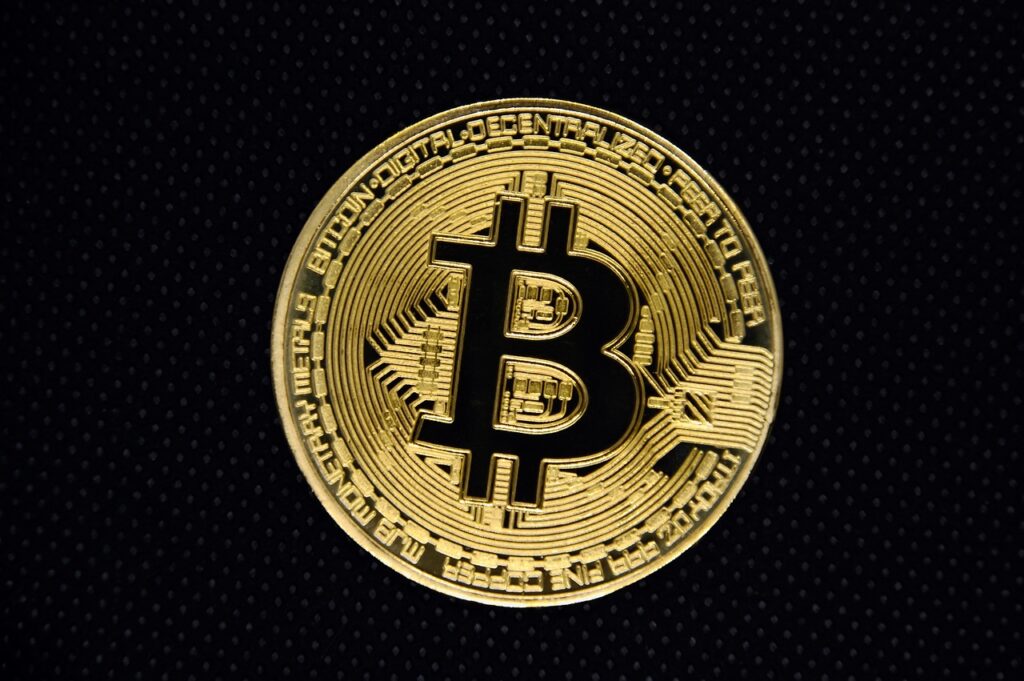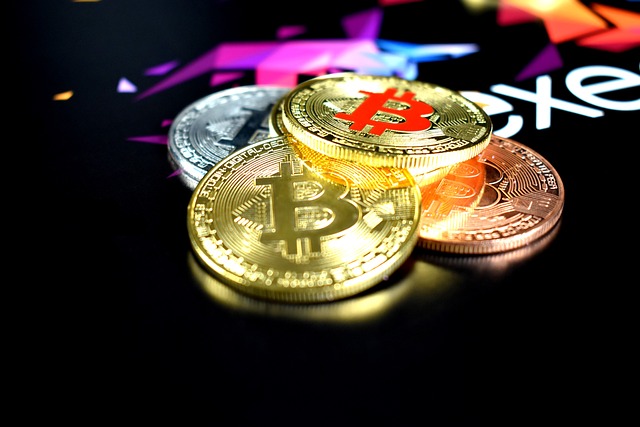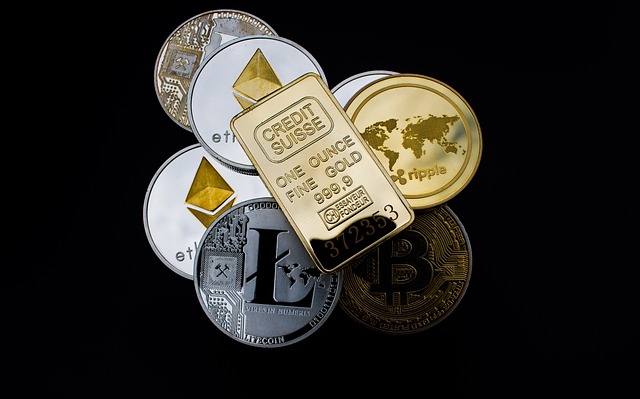DeFi Pros and Cons: A Comprehensive Analysis for Decision-Makers
DeFi Pros and Cons: A Comprehensive Analysis for Decision-Makers

– Opportunities for Higher Returns: Exploring the potential for increased profits in the decentralized finance space.
Decentralized finance (DeFi) has emerged as a promising avenue for individuals seeking higher returns on their investments. Unlike traditional financial institutions, DeFi platforms offer a wide array of opportunities for users to generate profits in a decentralized and borderless environment. From yield farming and liquidity mining to decentralized exchanges and lending protocols, DeFi opens up a world of possibilities for those looking to maximize their returns.
One of the key factors driving the potential for increased profits in the DeFi space is the absence of intermediaries. Unlike traditional financial systems that rely on middlemen and centralized authorities, DeFi eliminates the need for intermediaries and connects users directly with the underlying protocols. This not only reduces costs but also removes barriers to entry, enabling individuals from all walks of life to participate in earning higher returns. By leveraging the power of blockchain technology and smart contracts, DeFi offers a level playing field where users have full control over their assets and can earn profits through various innovative mechanisms. Whether it’s providing liquidity on decentralized exchanges or staking assets in yield-generating protocols, DeFi offers a range of options for individuals to explore and potentially reap greater financial rewards.
– Enhanced Accessibility: How DeFi opens up financial services to anyone with an internet connection, regardless of their location or economic status.
DeFi, or decentralized finance, has revolutionized the accessibility of financial services across the globe. With just an internet connection, individuals from any part of the world can now easily access and participate in the DeFi ecosystem, regardless of their geographical location or economic status. This enhanced accessibility empowers people who were previously excluded from traditional financial systems to engage in various financial activities, such as lending, borrowing, and investing, through decentralized platforms.
The internet has become a powerful tool for bridging the gap between the unbanked and financial services. Through DeFi, individuals who previously lacked access to traditional banking facilities can now create and manage financial instruments directly on decentralized platforms. This offers them the opportunity to grow their wealth, access credit, and engage in financial transactions that were previously inaccessible. By eliminating the need for intermediaries and reducing the barriers to entry, DeFi has truly democratized financial services, paving the way for greater financial inclusion on a global scale.
– Increased Transparency: Examining the transparency and accountability offered by DeFi platforms, providing a more trustless environment compared to traditional finance.
DeFi platforms bring an unprecedented level of transparency to the financial landscape. Unlike traditional finance, where financial transactions and information are often hidden behind layers of bureaucracy, DeFi operates on blockchain technology, allowing for a transparent and immutable record of all transactions. This transparency ensures that every transaction can be traced and verified by anyone, creating a more trustless environment.
In addition to transparency, DeFi platforms also prioritize accountability. Since transactions are conducted on a decentralized network, there is no central authority that can manipulate or control the system. Instead, the rules and protocols of DeFi are enforced by smart contracts, which are self-executing agreements written in code. These smart contracts automatically execute transactions when specific conditions are met, eliminating the need for intermediaries and reducing the risk of fraud or manipulation.

– Lower Costs: Discussing the cost-saving advantages of DeFi in terms of transaction fees, intermediaries, and other expenses typically associated with traditional finance.
As decentralized finance (DeFi) gains momentum, one of its most notable advantages is the potential for lower costs compared to traditional finance. In the world of traditional banking, transactions often come with hefty fees, especially when it involves cross-border transfers or complex financial instruments.

Moreover, DeFi eliminates the middleman in financial transactions, such as brokers or custodians, who traditionally add to the expenses. By leveraging smart contracts and blockchain technology, individuals can engage in direct transactions with one another, bypassing the need for intermediaries. Additionally, the transparency provided by DeFi platforms allows users to accurately assess the costs and potential savings involved in various transactions. This level of visibility empowers individuals to make informed decisions and opt for lower-cost options, ultimately reducing their financial burdens.
– Financial Inclusion: Highlighting how DeFi can bridge the gap between the unbanked and traditional financial services, offering financial opportunities to those who were previously excluded.
In traditional financial systems, the unbanked population often faces significant barriers when it comes to accessing financial services. However, decentralized finance (DeFi) has the potential to revolutionize this landscape. DeFi platforms operate on blockchain technology, which allows for the creation of decentralized applications (dApps) that can provide financial services to anyone with an internet connection, regardless of their location or economic status. This opens up a world of opportunities for the unbanked, who were previously excluded from the traditional financial system.
One of the key benefits of DeFi is its ability to offer financial opportunities to those who have been marginalized by the traditional banking system. With DeFi, individuals can access services such as borrowing, lending, and investing without the need for a traditional bank account. This is particularly beneficial for the unbanked, who may not have access to the necessary documentation or meet the requirements set by traditional financial institutions. By bridging this gap, DeFi empowers individuals to take control of their finances and participate in the global economy, ultimately leading to greater financial inclusion for all.
Disadvantages of DeFi:
Volatility and risk are two prominent factors that come with decentralized finance.

Another disadvantage of DeFi is the current lack of regulation. As decentralized finance operates outside the traditional financial system, it lacks the oversight and regulations that are imposed on centralized institutions. While this may provide a sense of freedom and autonomy, it also opens the door for potential fraudulent activities and scams. The absence of regulatory bodies makes it challenging to hold individuals or platforms accountable in the event of disputes or malpractices. This lack of regulation not only poses risks to investors and users but also impedes the wider adoption of DeFi as a reliable and secure financial alternative.
– Volatility and Risk: Exploring the inherent risks and volatility associated with decentralized finance, including potential price fluctuations and smart contract vulnerabilities.
Decentralized finance (DeFi) brings numerous advantages to the table, but it is not without its fair share of risks and volatility. One of the primary concerns in the DeFi space is the potential for price fluctuations. Unlike traditional financial markets that rely on centralized authorities to stabilize prices, DeFi platforms are subject to the forces of supply and demand, which can lead to significant price swings. While these price fluctuations can present opportunities for higher returns, they also pose substantial risks for investors who may experience sudden and unpredictable losses.
Another notable risk associated with DeFi is the vulnerability of smart contracts. Smart contracts are computer programs that execute predefined actions when certain conditions are met. Although these contracts are designed to be secure and tamper-proof, they are not immune to vulnerabilities. Exploiting these vulnerabilities could lead to the loss of funds or other malicious activities. As the DeFi ecosystem continues to evolve and attract more attention, developers and users must remain vigilant in identifying and addressing potential smart contract vulnerabilities to safeguard against these risks.
– Lack of Regulation: Discussing the challenges and potential consequences of the current lack of regulatory oversight in the DeFi space.
The decentralized nature of the DeFi space has its advantages, but it also poses challenges due to the lack of regulatory oversight. Without clear regulations in place, participants in the DeFi ecosystem face uncertainties in terms of legal protections and accountability. This lack of regulation may lead to potential consequences such as market manipulation, fraudulent activities, and increased risks for investors.
Additionally, the absence of regulatory oversight can hinder the growth and adoption of DeFi in traditional financial systems. Many institutional investors and mainstream users may be hesitant to embrace DeFi due to concerns about security, investor protection, and compliance. Without proper regulations, it becomes difficult to build trust and confidence in the DeFi space, which ultimately limits its potential to reach a wider audience and achieve mainstream adoption.
– Limited User Support: Addressing the potential issues users may face in terms of customer support and dispute resolution in the decentralized finance ecosystem.
DeFi, with its decentralized nature, brings a new set of challenges for users when it comes to customer support and dispute resolution. Unlike traditional financial institutions, there is no centralized authority or customer service department to address user concerns. This can lead to frustration and potential difficulties in obtaining timely assistance. In the DeFi ecosystem, users rely on various decentralized platforms and protocols, each with its own support mechanisms. However, the level of user support can vary significantly from one platform to another, and there is often a lack of standardized processes for dispute resolution. This can make it challenging for users to find the help they need when encountering issues or facing financial disputes.
The decentralized nature of DeFi also presents unique challenges in terms of accountability and responsibility. With traditional finance, there are established regulatory frameworks and governing bodies that oversee customer support and dispute resolution processes. In contrast, DeFi operates on blockchain technology and smart contracts, which often lack the same level of built-in protections and safeguards. This can leave users vulnerable to potential scams, hacks, or technical glitches. While efforts are being made to improve user support and dispute resolution mechanisms in the DeFi space, it is crucial for users to exercise caution and conduct thorough research before engaging with any decentralized platforms.
• Users may face challenges in obtaining timely assistance due to the lack of centralized customer service departments.
• The level of user support can vary significantly from one decentralized platform to another.
• There is often a lack of standardized processes for dispute resolution in the DeFi ecosystem.
• Users may struggle to find the help they need when encountering issues or facing financial disputes.
• The decentralized nature of DeFi makes it challenging to establish accountability and responsibility.
• Blockchain technology and smart contracts may not have the same level of built-in protections as traditional finance systems.
• This leaves users vulnerable to potential scams, hacks, or technical glitches in the DeFi space.
• It is important for users to exercise caution and conduct thorough research before engaging with any decentralized platforms.
– Security Concerns: Analyzing the security risks associated with DeFi, such as hacking attempts, vulnerabilities
As with any emerging technology, decentralized finance (DeFi) is not without its share of security concerns. One of the primary risks associated with DeFi is the potential for hacking attempts. Since DeFi operates on a blockchain network, which is considered to be immutable and secure, hackers are continually looking for vulnerabilities to exploit. These attacks could result in the loss of funds, sensitive data, or even the manipulation of smart contracts. It is crucial for individuals and businesses operating in the DeFi space to implement robust security measures to mitigate these risks and protect their assets.
In addition to hacking attempts, vulnerabilities within the DeFi ecosystem also pose significant security risks. Smart contracts, which are self-executing contracts with predefined rules coded onto the blockchain, can be susceptible to bugs or errors. These vulnerabilities can be exploited by malicious actors, resulting in financial losses or unauthorized access to decentralized applications (DApps). As DeFi continues to evolve, it is essential for developers and auditors to conduct thorough security assessments and constantly work towards improving the reliability and resilience of smart contracts to safeguard users’ funds and personal information.
What is DeFi?
DeFi stands for decentralized finance, which refers to financial services and applications that are built on blockchain technology and operate without intermediaries or central authorities.
What are the advantages of DeFi?
There are several advantages of DeFi. It offers opportunities for higher returns, enhanced accessibility, increased transparency, lower costs, and financial inclusion.
How can DeFi provide higher returns?
DeFi platforms provide the potential for increased profits through various decentralized financial products and services, such as yield farming and liquidity mining.
How does DeFi enhance accessibility?
DeFi opens up financial services to anyone with an internet connection, regardless of their location or economic status. It eliminates the need for traditional banking infrastructure and allows individuals to participate in financial activities directly.
What does increased transparency mean in the context of DeFi?
DeFi platforms offer transparency and accountability by utilizing blockchain technology. Transactions and smart contracts are recorded on a public ledger, creating a trustless environment compared to traditional finance.
How does DeFi lower costs?
DeFi eliminates the need for intermediaries, reducing transaction fees and other expenses typically associated with traditional finance. It provides a cost-saving advantage for users.
What is the significance of financial inclusion in DeFi?
DeFi bridges the gap between the unbanked population and traditional financial services. It offers financial opportunities to those who were previously excluded, providing them with access to various financial products and services.
What are the disadvantages of DeFi?
Some disadvantages of DeFi include volatility and risk, lack of regulation, limited user support, and security concerns.
Why is volatility a concern in DeFi?
DeFi is known for its inherent risks and price fluctuations. The value of decentralized assets can be highly volatile, making it important for users to understand and manage such risks.
What is the impact of lack of regulation in DeFi?
The current lack of regulatory oversight in the DeFi space poses challenges and potential consequences. It could lead to scams, fraud, and other illegal activities, potentially harming users.
What issues can users face regarding customer support in DeFi?
Users may experience difficulties in terms of customer support and dispute resolution in the decentralized finance ecosystem. Since DeFi operates without intermediaries, there may be limited avenues for user support.
What are the security risks associated with DeFi?
DeFi platforms are vulnerable to hacking attempts and smart contract vulnerabilities. Security concerns can arise due to the decentralized nature of these platforms, making it essential for users to take necessary precautions.
Todays Featured Product:
Buy, exchange and grow your crypto securely with a Ledger hardware wallet, combined with the Ledger Live app. It’s never been easier to keep your crypto safe and accessible. Buy direct from Ledger.com and get todays Special Offers Here.




